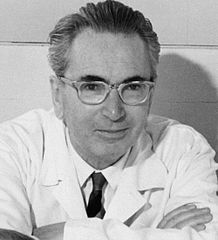 Have you ever thought how sweet hope is? Imagine what it would be like to live without the smallest drop of hope. Unfortunately, many have done more than just imagine this. Our hearts should go out to them. It’s heart-rendingly tragic. Hope is key to living the present moment to the full. Animals don’t have it. They don’t look to the future. On the one hand, this frees them from anxieties about the uncertainties yet to come. On the other, they never enjoy the sweetness of hope.
Have you ever thought how sweet hope is? Imagine what it would be like to live without the smallest drop of hope. Unfortunately, many have done more than just imagine this. Our hearts should go out to them. It’s heart-rendingly tragic. Hope is key to living the present moment to the full. Animals don’t have it. They don’t look to the future. On the one hand, this frees them from anxieties about the uncertainties yet to come. On the other, they never enjoy the sweetness of hope.
“It is a peculiarity of man that he can only live by looking to the future—sub specie aeternitatis. And this is his salvation in the most difficult moments of his existence, although he sometimes has to force his mind to the task.” (Viktor Frankl, Man’s Search for Meaning)
Viktor Frankl, a well-known concentration camp survivor, developed an entire psychological school based on finding meaning in life. Whereas in the past, men like Freud and Adler sought the source of anxiety in hidden wounds that have been suppressed within us, Frankl sought the answer to the cure in finding meaning where it was before lacking. The meaning in life for each person is unique because his life was unique and irreplaceable. Frankl’s theory was not based on ethereal theorizations from the university classroom. It is the fruit of his witnessing four years of the battle for survival within himself and others in the concentration camps of Auschwitz, Kaufering— a camp affiliated with Dachau— and the “rest camp” of Türkheim.
To live the present to the full, we need to embrace the future with hope. Frankl offers a wealth of wisdom in how to live the present to the full by embracing the future. He famously notes that those who survived the concentration camps were not the physically strong, but those who had a reason, meaning, in their fight for survival. He says: “He knows the “why” for his existence, and will be able to bear almost any “how.” (Man’s Search for Meaning)” Elsewhere he says:
A man who could not see the end of his “provisional existence” was not able to aim at an ultimate goal in life. He ceased living for the future, in contrast to a man in normal life. Therefore the whole structure of his inner life changed; signs of decay set in which we know from other areas of life. The unemployed worker, for example, is in a similar position. His existence has become provisional and in a certain sense he cannot live for the future or aim at a goal.
In his book on the stages of life, Romano Guardini sheds a lot of light on the future. He makes it clear that no stage in life is merely a preparation for the next stage, but each stage of life lived well helps us live the next stage well. He says “Each phase exists in its turn with reference to the whole and to each of the other phases. What harms one will also harm the whole and each part.” (Guardini, Las Etapas de la Vida) A well-lived adolescence, for example, leads into a wholesome adulthood. A deprived childhood will also affect the other stages. So we need to live the present sweetened by the hope we have for the future, but also aware of the impact the present will have on that future.
Guardini points out the damage that is done if we lose sight of the future: an adolescent who doesn’t live with high ideals for the future or a father who doesn’t live with a realistic vision for the future of his family or an elderly person who doesn’t live with the awareness of his proximate entrance into new life. Ultimately, each stage in life needs to be imbued with this awareness of where we are going. Otherwise we live immaturely directionless, as if we were taking an unending joyride through life until we ran out of gas. We need to live with the awareness that we are on a journey through life, that we were made for Heaven. It doesn’t end here. We were made for something beyond.
The future makes all the difference to live the present to the full. But looking towards the future as a threat, or as the specter of the great unknown only drains our ability to live the present. It is only the future embraced with hope and trust that allows us to direct our choices in the present. We were made for something greater yet to come. “I have come home at last! This is my real country! I belong here. This is the land I have been looking for all my life, though I never knew it ‘til now.” I love this quote from the final chapter of C.S. Lewis’ Last Battle. We have the future, eternity, written deep within us. One day we will arrive if we chose to embrace it. It is only in embracing it that we can be fully alive today.
